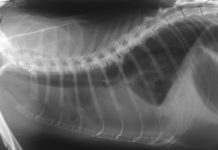Frequently, it is so hard to discern the precise location of the pain when a certain animal has been injures, since they cannot tell us where they really are hurt. The vet might even have a hard time in determining the location as well. Further, due to the fact that there are so many reasons for neck and back pain in cats, zeroing in unto the causal cause might take quite some time. In this article, we will discuss some more interesting facts about neck and back pain in cats including its causes, symptoms, and treatments. Read on to learn about these and more!
What is Neck and Back Pain in Cats?

If you happen to notice a significant change on the behavior of a cat, which may indicate neck and back pain, then you need to take the cat immediately to a professional. This is to get the precise prognosis and have an effective treatment plan.
Moreover, if it so happen that the cat experiences any kind of discomfort along its spine, it’s feeling either neck or back pain. The neck and back pain in cats may range in intensity and is occasionally not easy to determine from some other kind of pain.
For instance, pain that comes from the abdominal area may sometimes be confused for the pain in the back or vice versa. Due to the fact that animals can’t communicate clearly the discomfort they feel, it might be hard to figure out precisely where the pain comes from and what might be causing it.
Causes
There are some diseases, injuries, and some other conditions, which may cause neck and back pain. These causes include the following:
- Infection or inflammation of meningitis
- Cancer
- Dislocations
- Vertebral disk conditions
- Organ disorders near the back, causing raised pain
- Inflammation
- Infection
- Trauma, like spinal fractures and bites
Symptoms
Cats may appear superficially uninterested when something’s irritating the, hence, signs of pain aren’t always apparent. Moreover, pain in one area may also be mistaken for pain in some other part of the body. It’s so important to pay a close attention on how the cat behaves to determine if it’s suffering from neck and back pain. Below are some telltale symptoms that you need to watch out for:
- Bruises all over the spine
- Reluctance or inability to turn the head
- Spine deformities
- Change in gait or posture
- Weakness in the limbs
- Fever
- Lethargy
- Vocalization
- Change in appetite
- Arched back
- Neck stiffness
Prognosis

In order to diagnose the condition, the vet may perform a complete physical examination and conduct a full medical history of the cat. If the cause of the condition is not obvious, like the case with an apparent injury, then the veterinarian might perform some diagnostic tests. In order to search for the signs of infections and check on the state of the vital organs, a CBC or complete blood count, urine culture, biochemical profile, and a urinalysis may be taken.
Abdominal area x-rays may show if there are abnormalities in the organs, while spinal radiographs may check the spinal canal, disks, and vertebrae. The disks are commonly done when the cat is under heavy sedation and general anesthesia. Some other tests might include MRI, CT scan, or myelography, in order to identify cancer of trauma, as well as EMG to rule out or diagnose muscle disorders. If inflammatory infectious diseases or meningitis are suspected, the vet may suggest a cerebrospinal fluid analysis that needs spinal tap.
Treatments for Neck and Back Pain in Cats
The precise treatment plan in managing and correcting the neck and back pain of the cat may be discerned both after discovering the root cause, as well as determining the austerity of the discomfort. In some instances, neck and back pain may be easy to treat. Nonetheless, other times, treatments might be difficult, and it might take quite a quite a while to see the results.
Surgery
There are some instances wherein the neck and back pain of the cat may need way more invasive intervention, like surgical procedure. Surgery goes along with the medication since the cat may commonly receive medication to assist in coping up with the pain, as well as to prevent any infection following the process. The operations are suggested if the cat is suffering from so difficult illnesses. The conditions that need surgery are the ones that deal with cancer, infections in disks and vertebrae, spinal injury patients, and in some cases of paralysis.
Medication
Both anti-inflammatory and pain medication is commonly given to assist in the treatment and management of pain. If the vet has found out an infection, the cure may include a series of antibiotics. Further, the risk of relapse and side effects, particularly with antibiotics, however, is high. Due to this fact, you need to consult with the veterinarian before administering any medication. If cancer has been perceived, chemo drugs might be administered.









